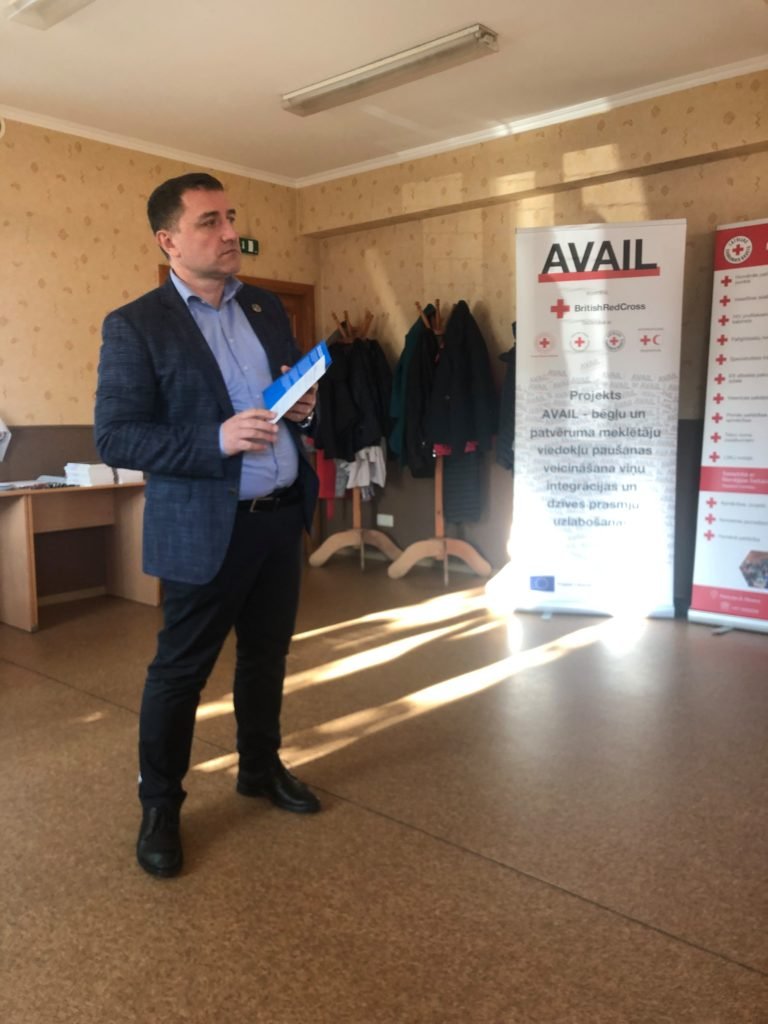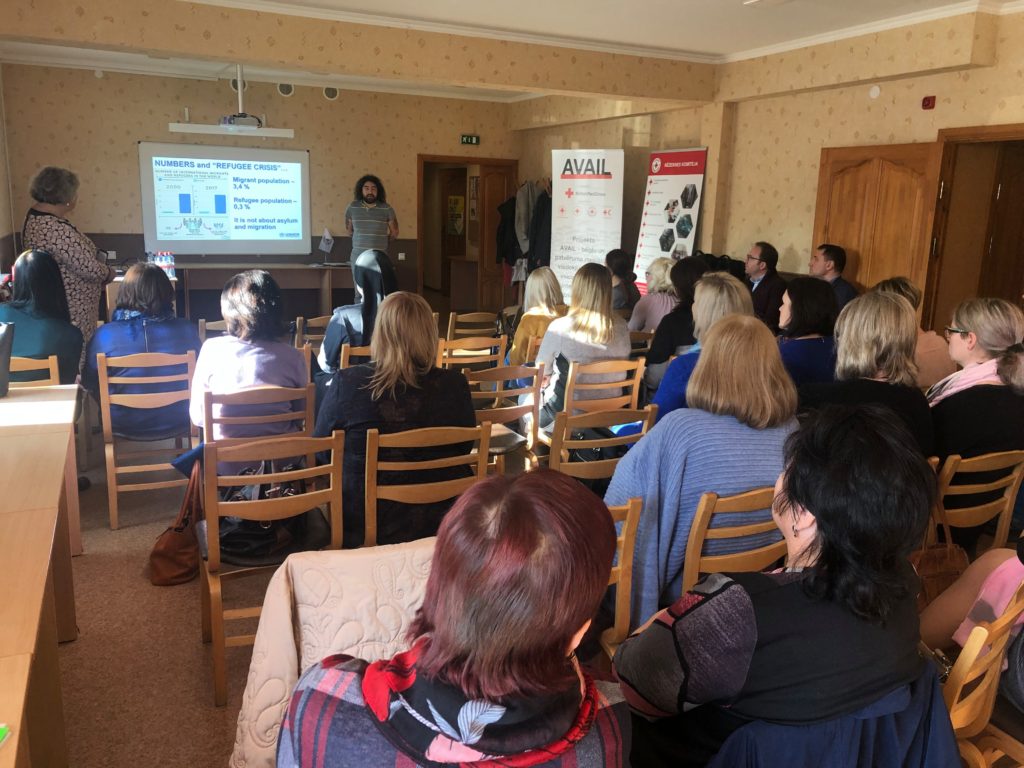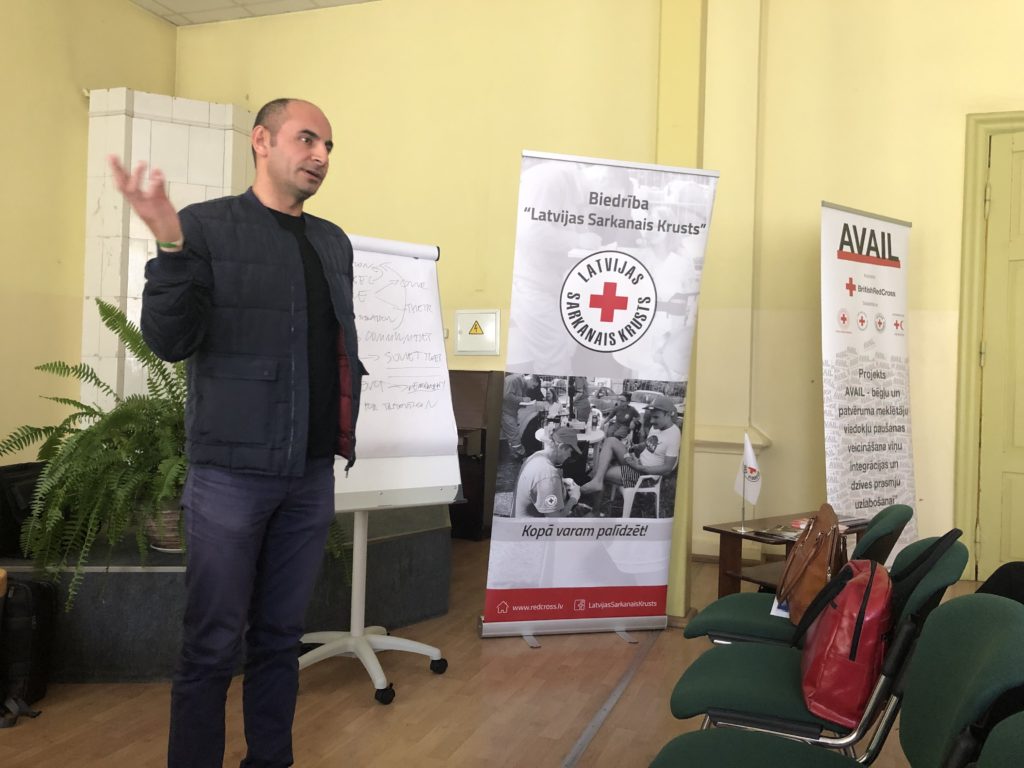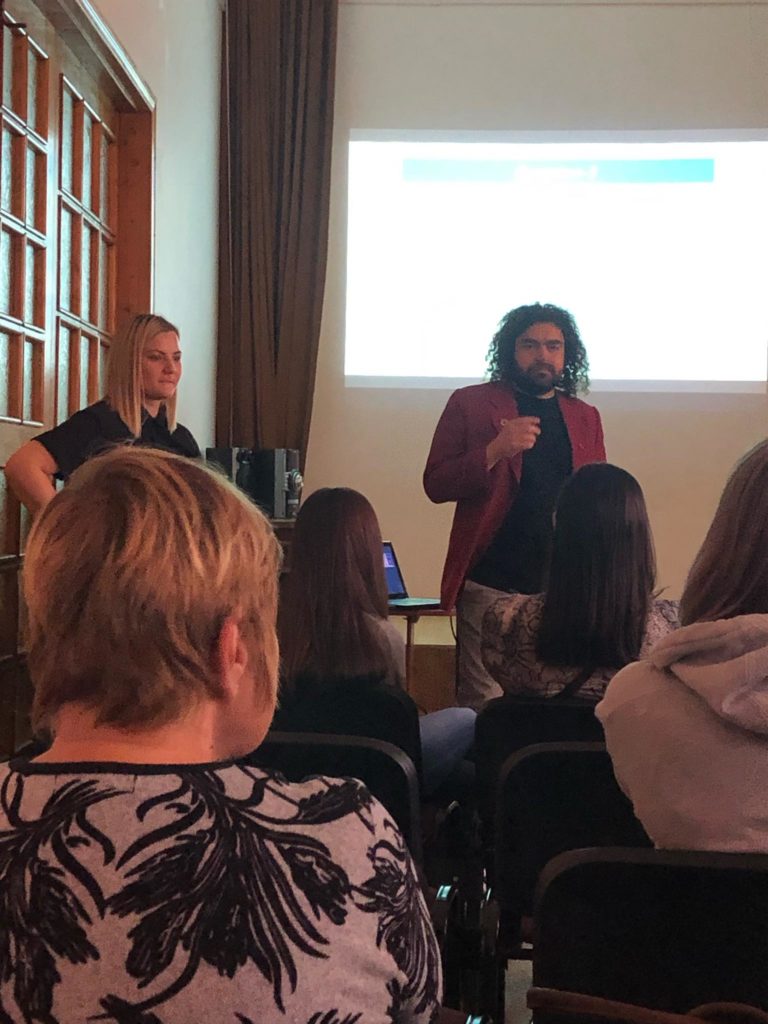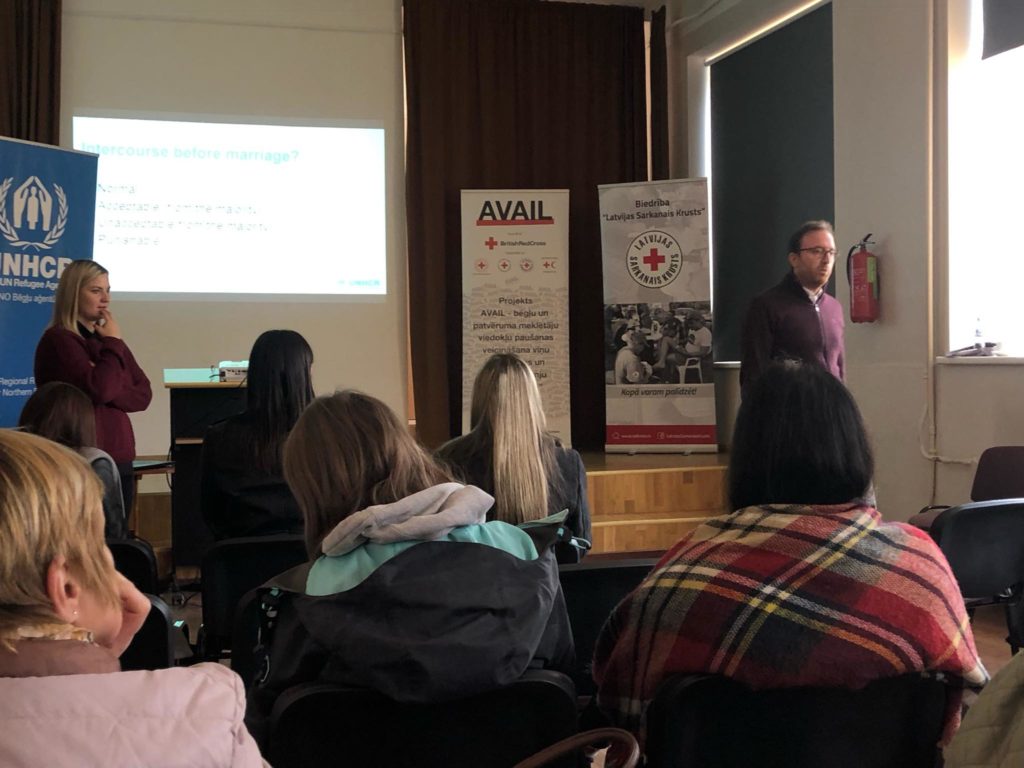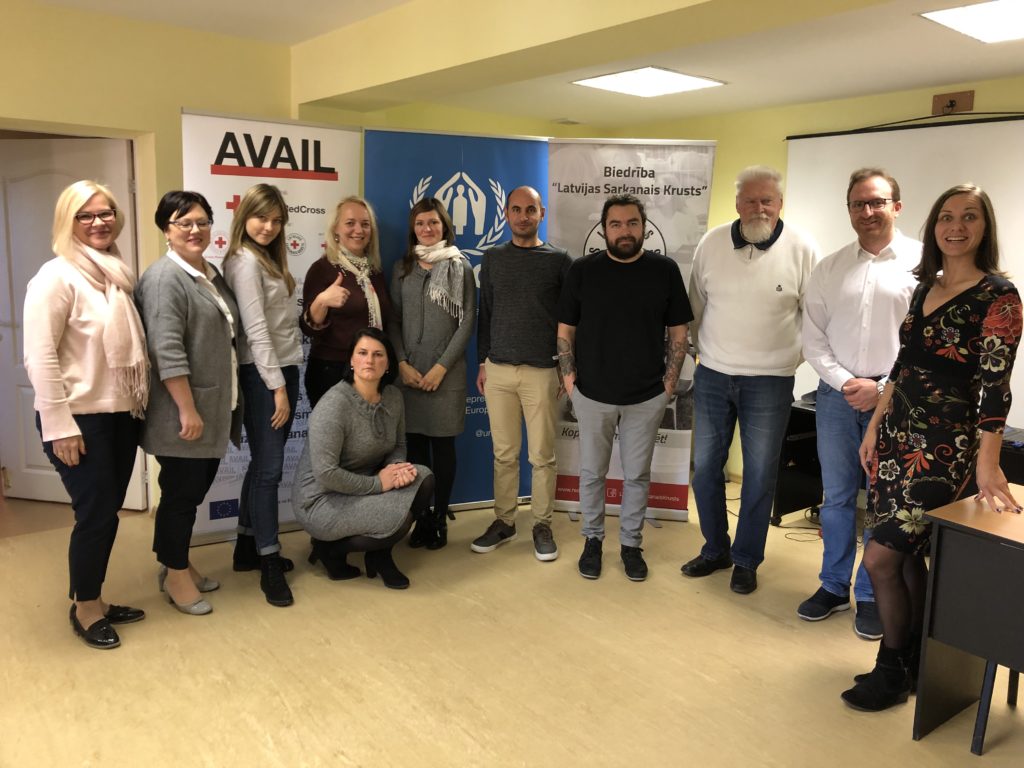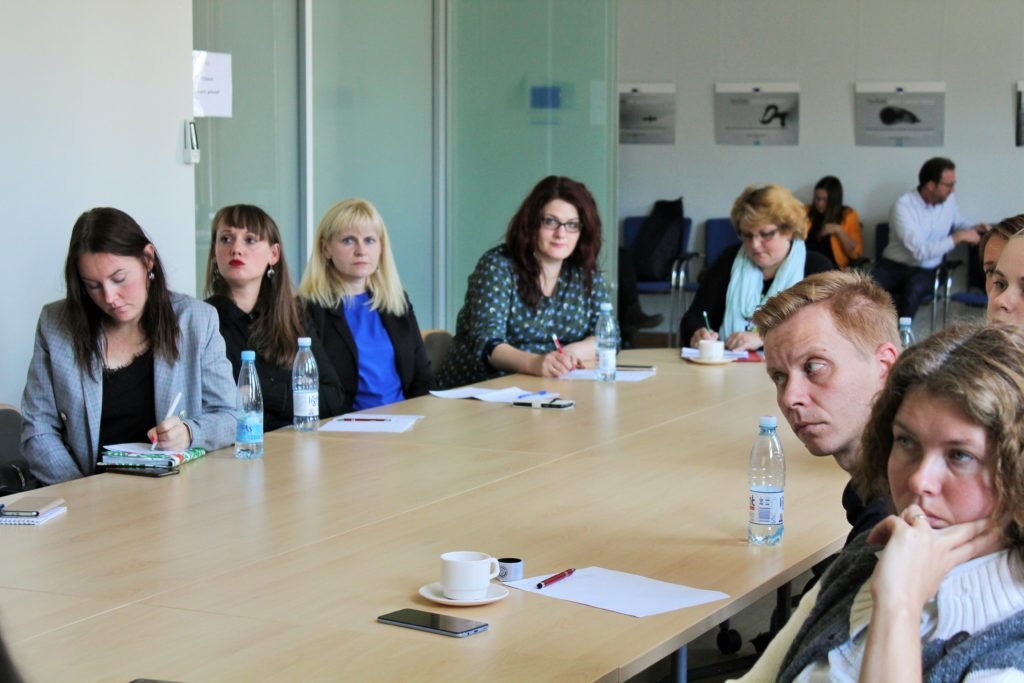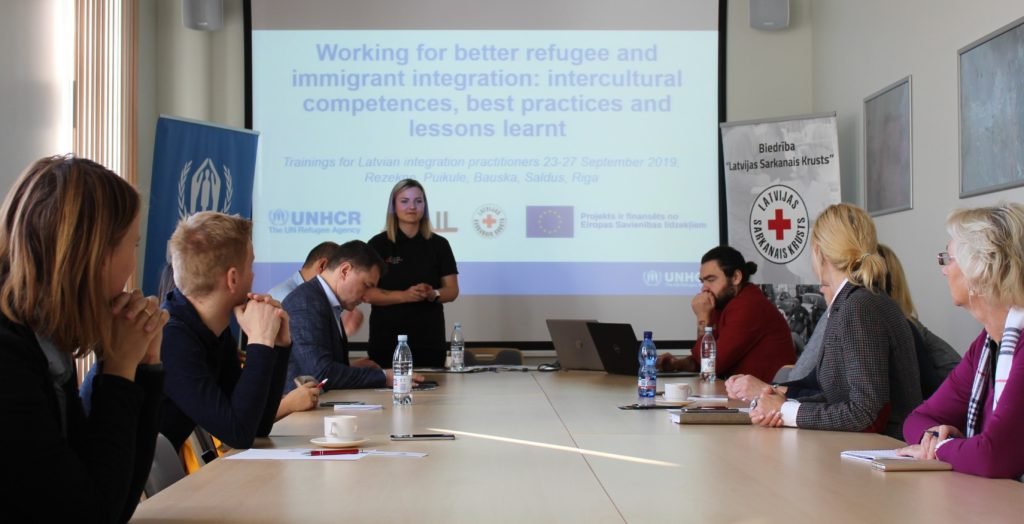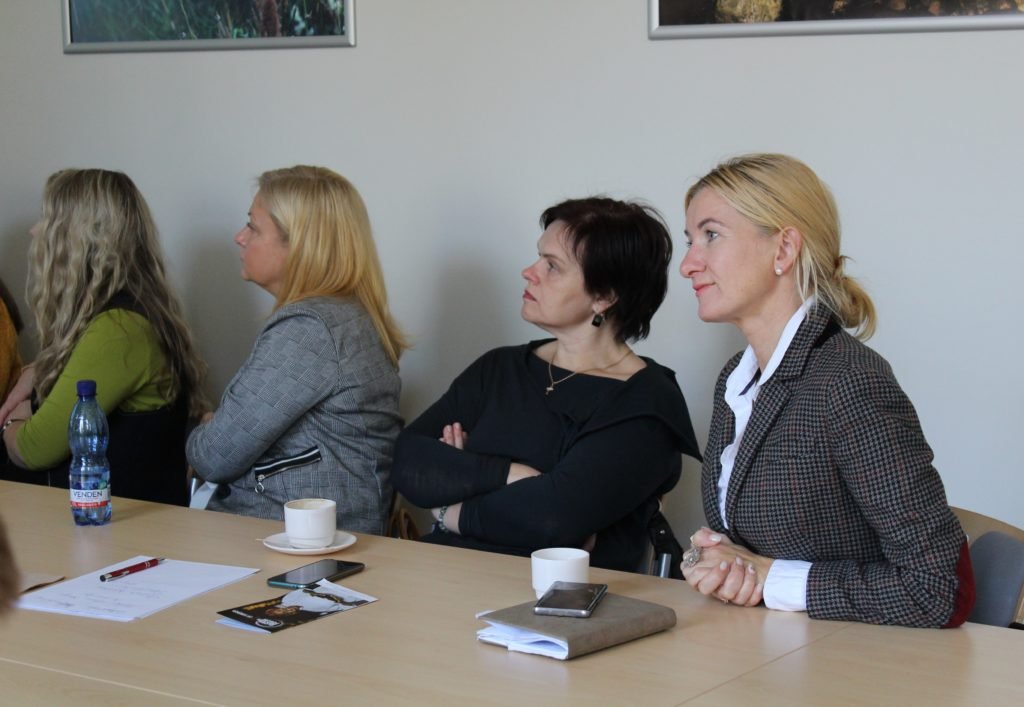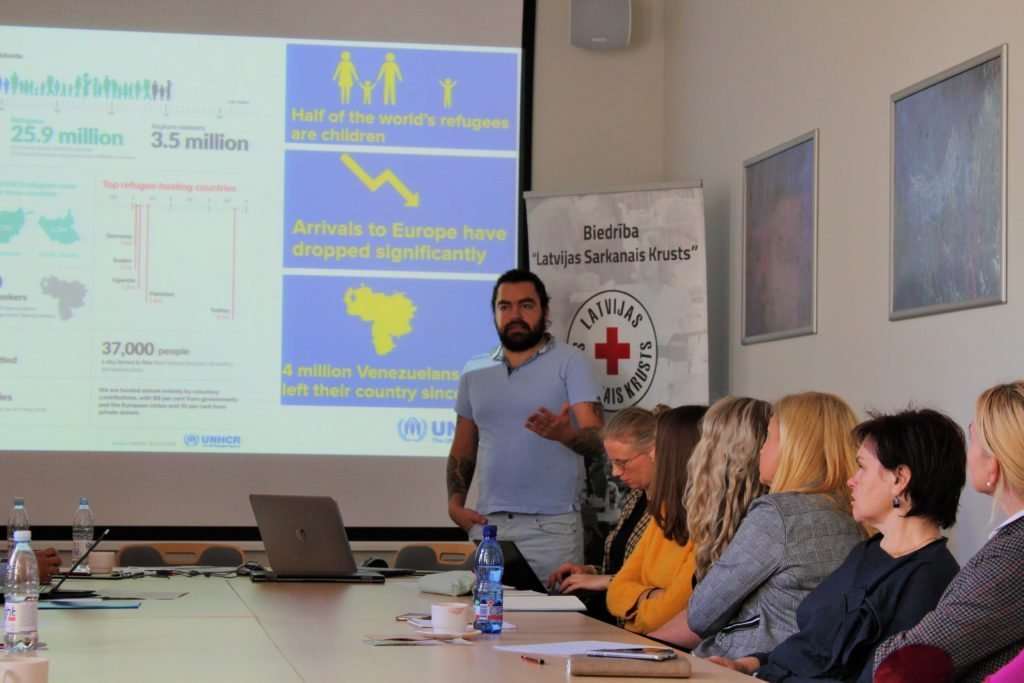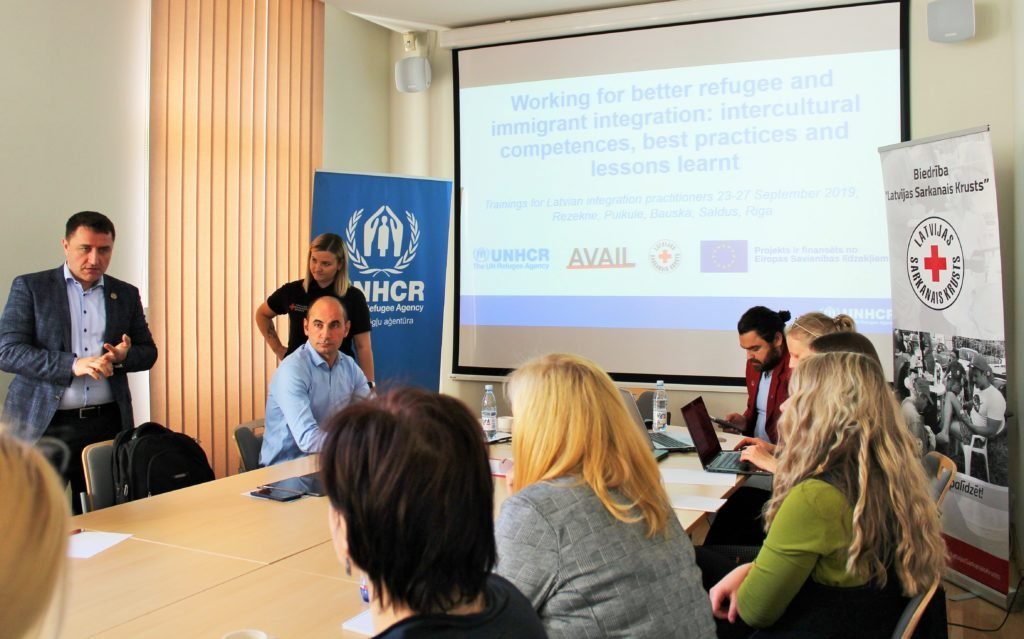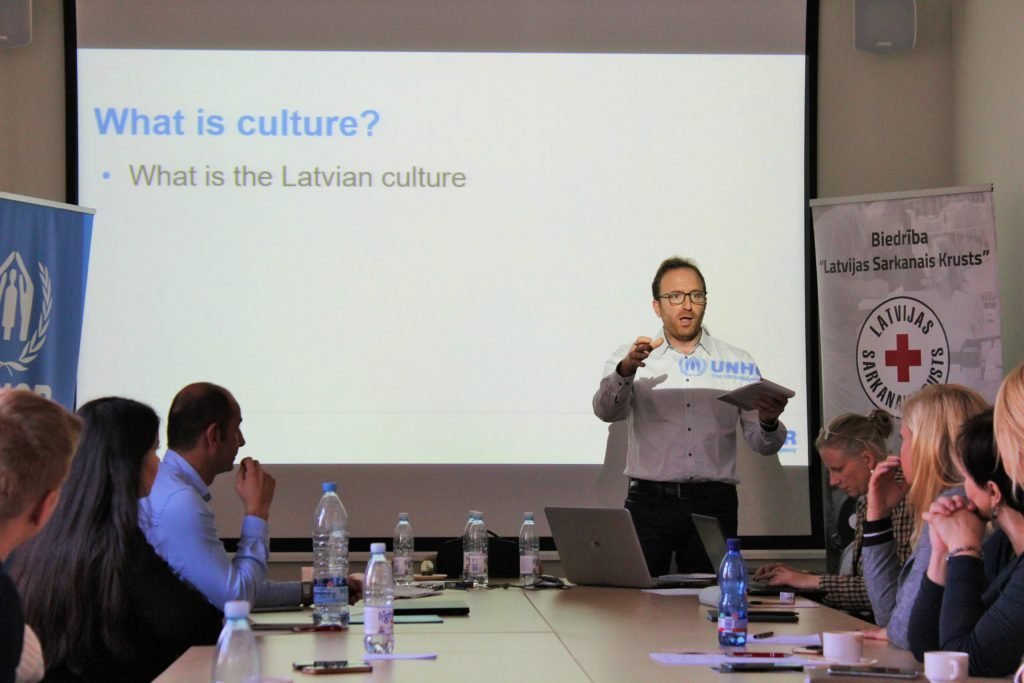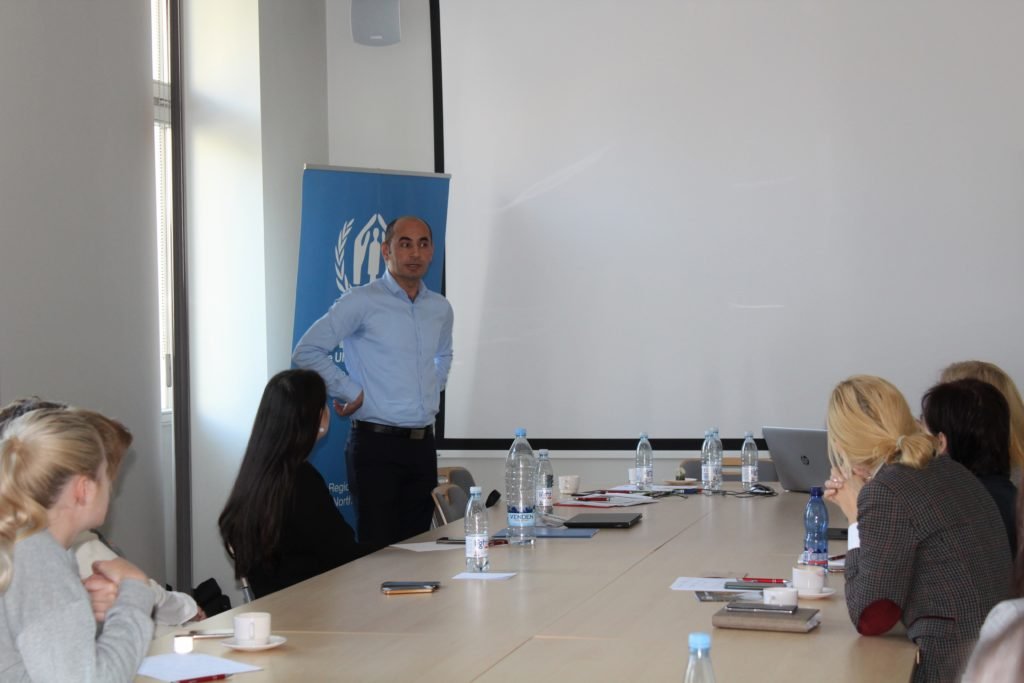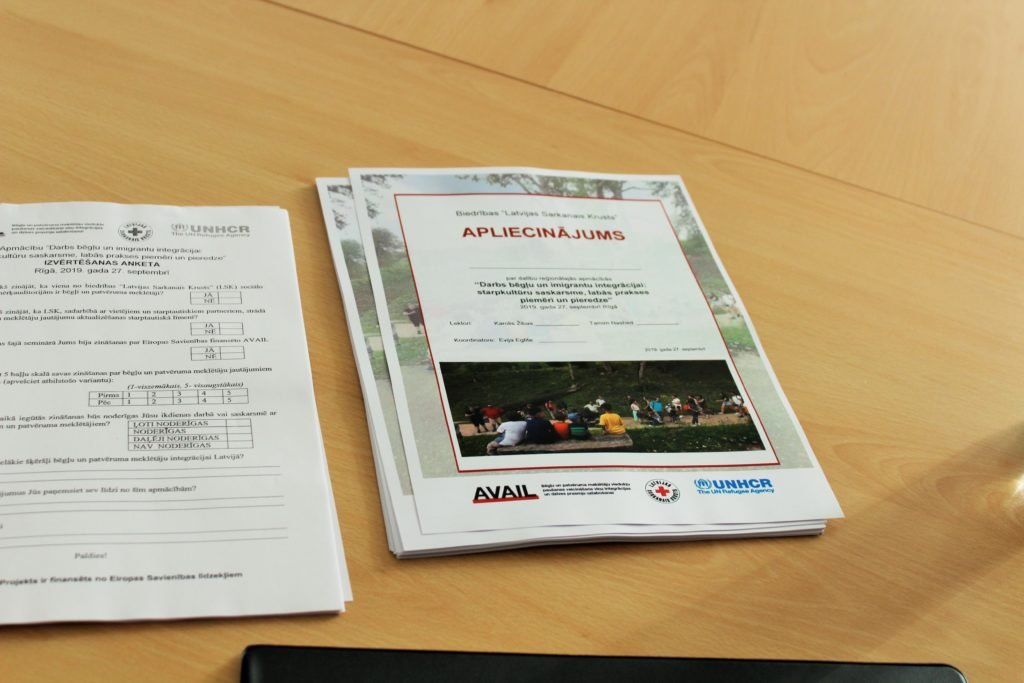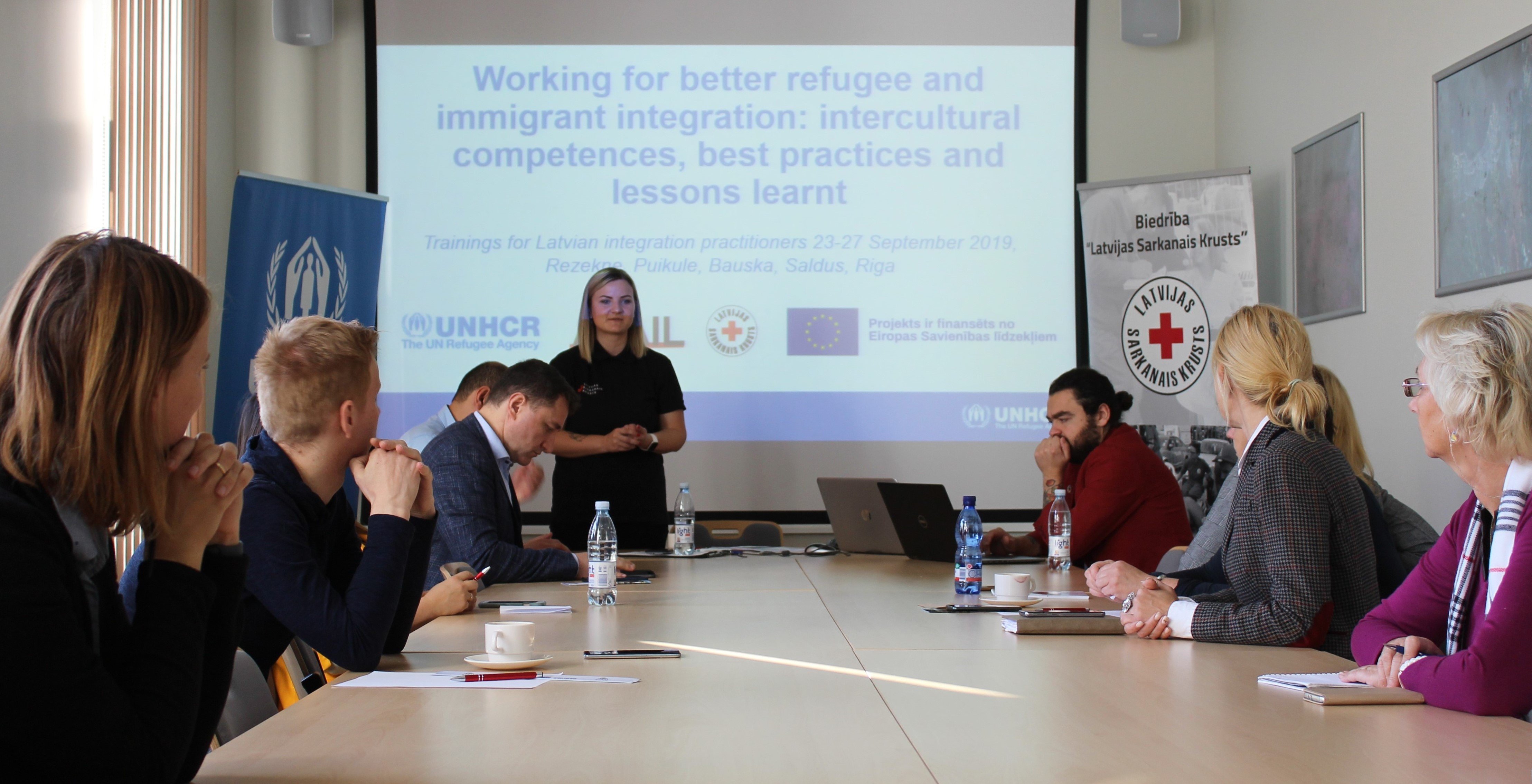
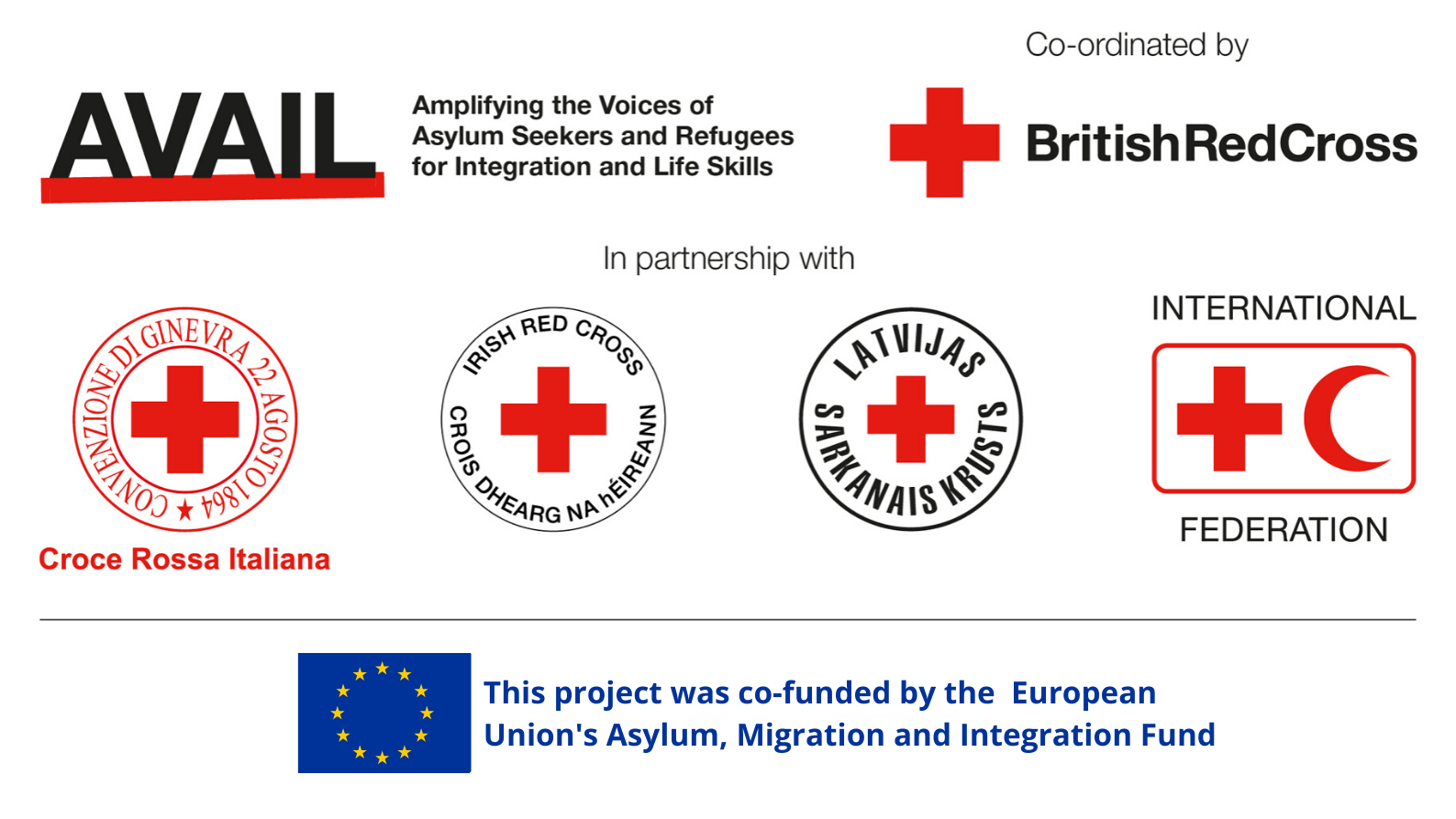
Latvian Red Cross, in cooperation with the UN Refugee Agency`s Regional Representation for Northern Europe (UNHCR), has organized 5 regional trainings with the title “Work for the integration of refugees and immigrants: intercultural interaction, good practice and experience.”
The training aims to build capacity and expertise of more than one hundred service providers, public authorities and representatives of local communities. Organized in five different regions across Latvia – Rezekne, Puikule, Bauska, Saldus and Riga between 23 – 27 September, the trainings are part of the international Red Cross project “AVAIL- Amplifying the Voices of Asylum Seekers and Refugees for Integration and Life Skills” (more information about the project can be found HERE).
The representatives from UNHCR, Marcel Colun and Karolis Zibas, presented general information about the current situation related to issues of asylum, migration and relocation, the effect of legislative changes on results of integration of refugees and immigrants, as well as overall integration policy and processes at the regional and national level.
Moreover, Mr. Tamim Nashed, a trainer form Austria who is independent expert on integration and intercultural competences and former Policy Officer at the European Council on Refugees and Exiles (ECRE), presented aspects of intercultural competences. Another speaker was a Syrian refugee living in Latvia, Mr. Sulaeman Alzouabi, who works as a doctor in a hospital. Sulaeman shared his life story and the experience of being a refugee.
The audience of these trainings were employees of state and municipal institutions, including policy planners, representatives from educational institutions, social and health care workers and activists form other non-governmental organisations. In addition, broad range of municipalities were represented: Riga, Rezekne, Daugavpils, Valmiera and Jurmala City councils, regional municipalities of Balvi, Rezekne, Aloja, Valka, Rezekne, Burtnieki, Bauska and Baldone. Moreover, representatives from State Work inspection, Society Integration Foundation, Latgale planning region and Municipal police of Aloja region were among the audience as well.
After these trainings, participants admitted that they had received a lot of new and interesting information that will be very useful in their daily work and communication with foreigners. Also, they revealed that from now on they will be more critical towards information about the migration crisis, refugees and intercultural interaction presented by media.
